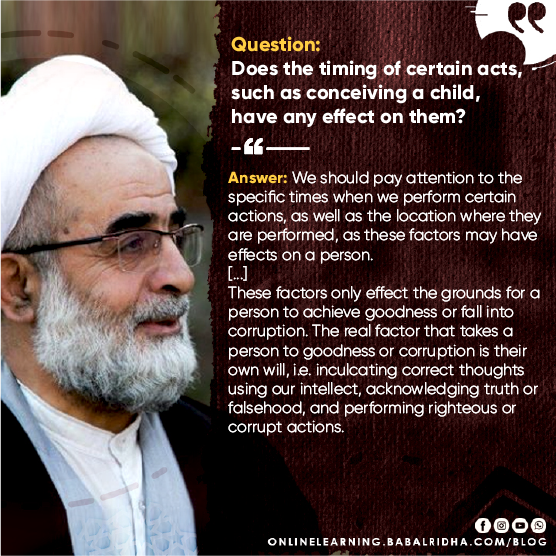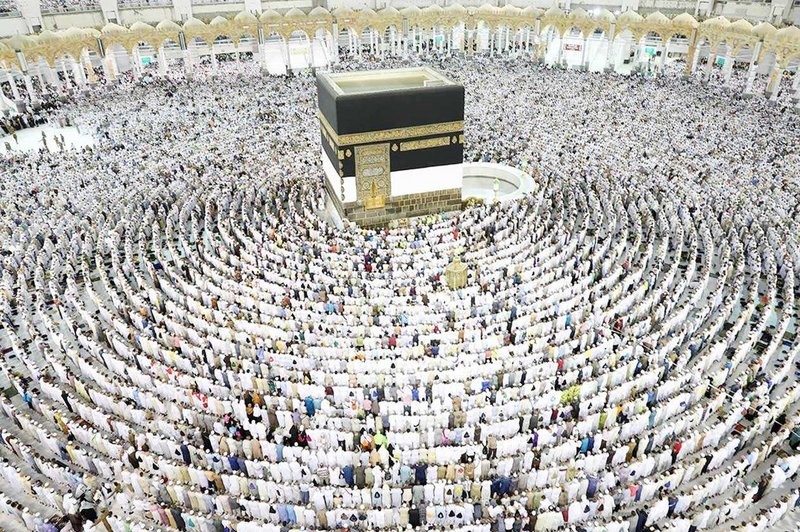Does the timing of certain acts, such as conceiving a child, have any effect on them?

Question: Does the timing of certain acts, such as conceiving a child, have any effect on them?
Answer: We should pay attention to the specific times when we perform certain actions, as well as the location where they are performed, as these factors may have effects on a person. From a religious viewpoint, time and location hold a certain type of consciousness and preserve our actions by the permission of Allah. If necessary and at the right time, they will also testify about our actions.
According to our narrations, certain times have particular traits. For example, the month of Ramadhan is a specific time in which fasting has been made obligatory; this obligation is not there one day before the month nor one day after the month. On the day of Eid, it is in fact unlawful to fast.
We also see that in the month of Zil Hijjah, going for Hajj becomes mandatory for a certain group of people. Similarly, the birth dates of the Ahlul Bayt are days of joy and happiness. Similarly, the days of our aimma’s martyrdom and death also have an effect on our souls. Likewise, when it comes to the matter of conceiving a child, we have also received some instructions. In the book Hilyatul Muttaqeen, Allamah Majlisi states some recommended timings for conceiving a child. However, time and other such factors only influence the grounds for a person’s success or failure (i.e. these things don’t determine a person’s success or failure).
What is important is for one to have belief in Allah, the Ahlulbayt, the truthfulness of religion, and the day of resurrection. As well as this, it is important to carry out the mandatory commandments of the shari’a and to strive to obey all of the commandments of Allah and the Ahlulbayt. This is the main thing. There are recommended acts – there are recommendations regarding when to marry, as well as supplications that should be recited for conception, or to have a righteous child. However, even if a person carries out all these acts (which we should be carrying out according to the shari’a), it doesn’t mean that after birth, the child will necessarily (i.e. in a pre-destined way) follow the path of salvation. Similarly, if a child is born in a corrupt environment, it doesn’t mean it will necessarily follow a corrupt path.
These factors only effect the grounds for a person to achieve goodness or fall into corruption. The real factor that takes a person to goodness or corruption is their own will, i.e. inculcating correct thoughts using our intellect, acknowledging truth or falsehood, and performing righteous or corrupt actions.




